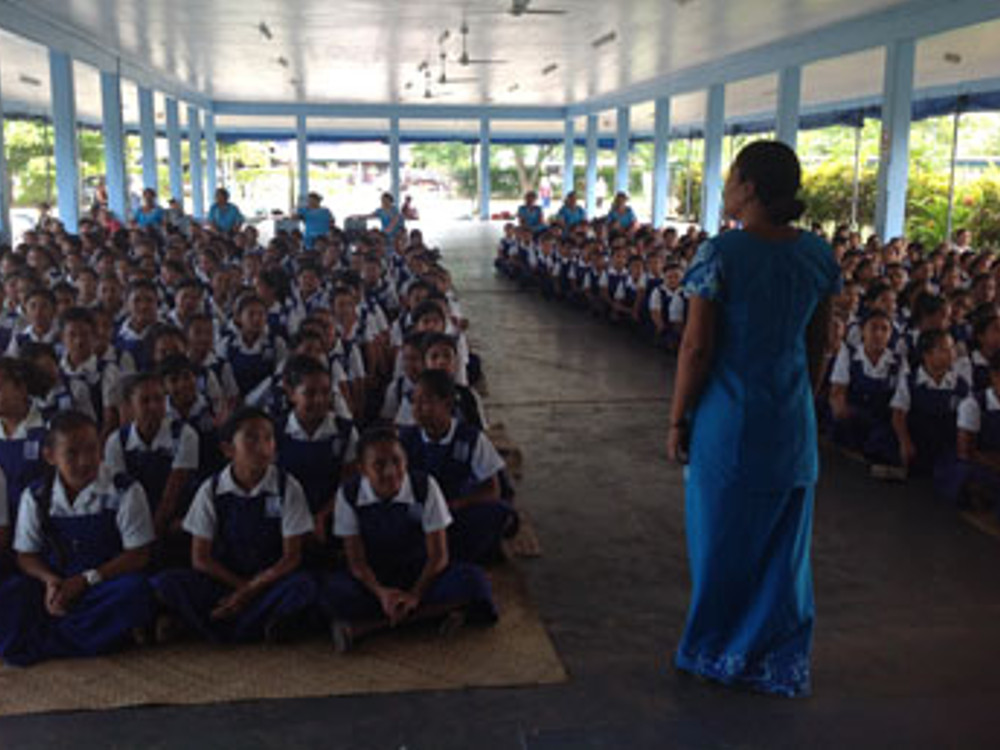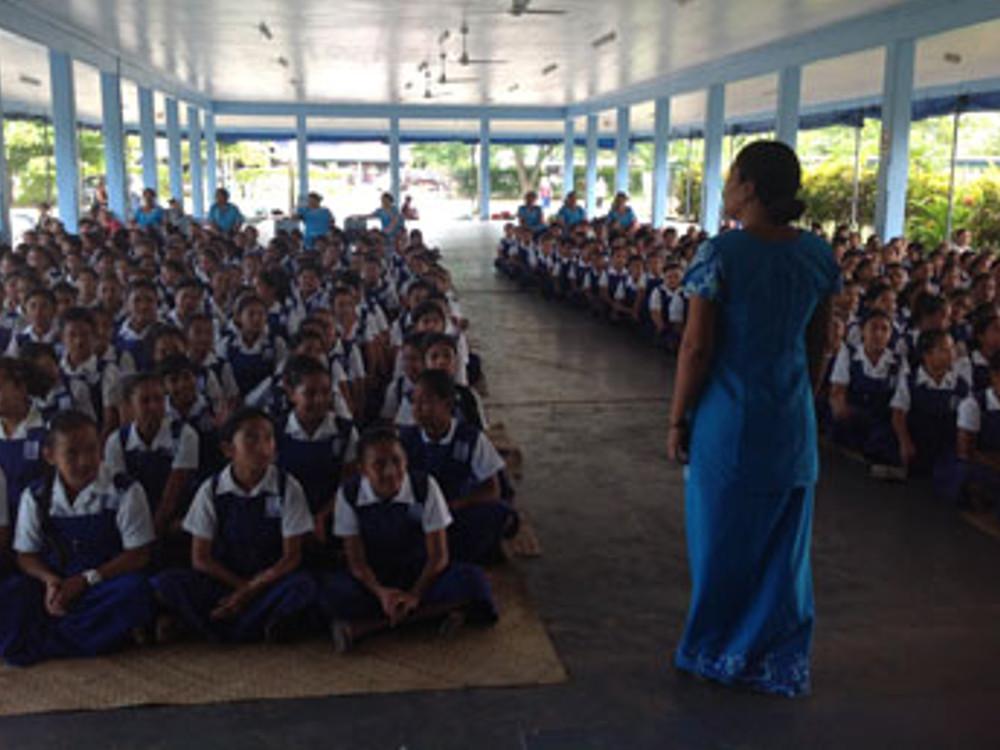 Pacific education leaders from Papua New Guinea, Samoa and Solomon Islands have gathered in Nadi this week for the presentation and discussion of benchmarked education results.
Pacific education leaders from Papua New Guinea, Samoa and Solomon Islands have gathered in Nadi this week for the presentation and discussion of benchmarked education results.
Benchmarking provides a baseline against which the performance of education systems can be monitored, both internally to track change over time, and externally, in comparison with other systems, especially those that are performing better.
This has been the work of the Pacific Benchmarking for Education Results (PaBER) pilot project implemented by the Educational Quality and Assessment Programme (EQAP) of the Pacific Community (SPC) in partnership with the Australian Government.
Importantly, PaBER has highlighted key findings and recommendations for countries to improve learning for the benefit of children in the Pacific.
The results comprise 500 findings, 270 recommendations and 47 reports across five policy domains.
“PaBER has been a unique pilot driven by the commitment and energy of the ministries of education in Samoa, Papua New Guinea and Solomon Islands, and supported by the Australian Government at the national and regional levels,” the Counsellor for Regional Health, Education and Gender at Australia’s Department of Foreign Affairs and Trade, Sheona McKenna, said.
PaBER’s main aim is to provide Pacific Islands’ education ministries with a systematic and reliable means of learning from their own systems, and from systems in other countries, about the policies, processes and activities that can have a positive impact on the quality of education, and specifically on learning outcomes.
Speaking of the impacts of PaBER, Deputy Secretary for PNG Department of Education, Dr Eliakim Apelis, said the pilot has assisted PNG to review and audit all its policies to assess their relevancy and currency with educational development so that there is consistency with government policies, including the PNG Vision 2050.
The PaBER pilot phase has successfully gathered a substantial amount of baseline information and knowledge from July 2012 to March 2016, focused on education systems in PNG, Samoa and Solomon Islands.
During this period, policy and system information was benchmarked in line with the two main components that critically influence the learning outcomes in five key policy domains: Teacher Quality; Assessment Systems; Curriculum and Materials; School Governance and Management; and Education Management Information Systems.
Ms McKenna added that PaBER has provided countries with the opportunity to benchmark their own systems and policies against a regional standard, share information, and learn about successful ideas and approaches from each other.
These key findings and recommendations were presented and discussed along with the lessons learned from the pilot project and the way forward with representatives of the national education ministries, technical working group and the development partners.
The final series of PaBER reports will be available online from July 2016.
Media contact:
Solo Matthewsella, EQAP Public Relations Assistant, [email protected] or +679 936 0903
Useful link:
Pacific Benchmarking for Education Results (PaBER)
